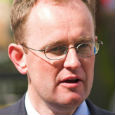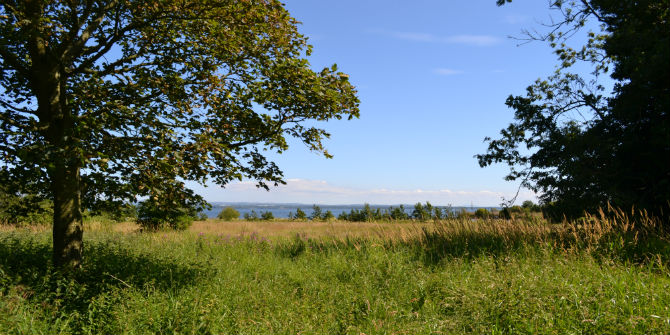 After the Brexit vote, Richard S Grayson (Goldsmiths, University of London) became an Irish citizen, meaning that he has dual British-Irish citizenship. This was partly from his desire to retain a European identity. More importantly, it reflected a Northern Irish ancestry which, before and after partition, was intimately bound up with the rest of the island. He suggests that for those with ties to Ulster, holding dual citizenship may help to break down barriers between the Republic and Northern Ireland.
After the Brexit vote, Richard S Grayson (Goldsmiths, University of London) became an Irish citizen, meaning that he has dual British-Irish citizenship. This was partly from his desire to retain a European identity. More importantly, it reflected a Northern Irish ancestry which, before and after partition, was intimately bound up with the rest of the island. He suggests that for those with ties to Ulster, holding dual citizenship may help to break down barriers between the Republic and Northern Ireland.
Mid-morning on Christmas Eve 2016, I had what felt like a present in the post: my first Irish passport. I applied for citizenship of the Republic of Ireland in July 2016, like thousands of Britons, following the vote to leave the European Union. The first stage was obtaining my ‘foreign birth registration’, a document from the Irish authorities confirming my Irish citizenship on the basis of being born overseas to an Irish parent. When that appeared in November I rapidly applied for a passport. The application was through my Grayson ancestry, using what is commonly thought of as a ‘grandparent rule’ (a grandparent born on the island of Ireland). It is more accurately a ‘parent rule’: my Essex-born Dad was considered Irish by the Irish government since he had at least one Irish-born parent (actually both in his case).
My application came after the referendum, but was not only for that reason. I did feel a profound sense of alienation from the majority opinion as reflected in the vote, and wanted to do something as an act of resistance against the Brexit vote. I also wanted to maintain a formal sense of being European, beyond the emotional one of cheering for Europe during the Ryder Cup. Many people have taken this step for pragmatic reasons, such as wanting shorter queues at airports. But I would have felt uneasy about applying for citizenship solely on those grounds. For me, taking dual citizenship had to mean being able to feel some sense of commitment to both states and their peoples. In this case, I do. For the past seven years I have been working on a book about Dubliners involved in the First World War and the Irish Revolution. I have spent much time in the Republic of Ireland, feel a connection particularly to Dublin’s story and its people, and am at home in the city. But my legal connection makes the way I feel about all this more complicated.

The Grayson family roots are in Lurgan in Northern Ireland, not the state which issues the Irish passport. The family story is of six Grayson brothers first going to Ireland as part of King William’s army over three centuries ago. Family graves in Lurgan are more than two hundred years old, and we farmed the same land at Kinnego on the edge of Lough Neagh for nearly the same length of time. Grandfather Edward Grayson married Maud Powell, born in County Down, whose family claimed some Huguenot ancestry. From then, it would scarcely be possible to construct a story covering more aspects of the Ulster Protestant narrative (though one Ulster great-grandmother was born into a Catholic family): mass family signing of the Ulster Covenant, a great-uncle in the 1913-14 Ulster Volunteer Force, and extensive service in the British military in the First World War, including on the Somme in 1916 in the iconic 36th (Ulster) Division.
So my personal identity is complicated. I am ‘from’ Hertfordshire: I was born there and have lived there most of my life. But there has long been an emotional connection in the family to Ulster and its link with Britain. Born in 1969, I was conscious at an early age of Ulster being unique, not only because of the Troubles. But my grandparents were pre-partition unionists and such people also had a wider connection to Ireland. My position was summed up by supporting England at cricket (note that England’s one-day team is now captained by a Dubliner) and Northern Ireland at football. For a time, with a nod to my Mum’s family roots, I supported Scotland at rugby, but the anti-Englishness that sometimes involves was alarming, so I switched to Ireland years ago. My Dad died in 2009 so can’t give me his thoughts on all this, but he certainly had a multi-layered identity. One weekend during the Six Nations, I spoke to him on a Saturday when he said ‘We won’ of an Ireland match and then next day ‘We lost’ of England.
These complications raise significant cultural and political questions about someone from my family background holding dual British and Irish citizenship. If you support the Union and its continuation, is it plausible to be a citizen of two states, and show loyalty to both, when one was born out of rejection of the other? If I couldn’t answer yes, I wouldn’t have applied for Irish citizenship because I was not fundamentally driven by the pragmatism which has driven many, even if Brexit prompted the timing. For me, some reference to the historic nature of unionism is necessary, whatever its contemporary tone might be. Just as Redmondite Irish nationalists sought devolution within the UK, not full independence, unionists historically recognised an all-Ireland dimension to their lives. Edward Carson did not seek partition at the outset of his campaign for the Union. In ways that are seen now most clearly seen in support for the all-Ireland rugby team (and other sports) and membership of the Church of Ireland, institutions intimately connected to pre-partition unionists were all-Ireland: from ‘Irish’ rather than ‘Ulster’ regiments of the British army, to Trinity College Dublin, and the Irish Times. Politically, some of this came back more than two decades ago, but said ever so softly. The Belfast or ‘Good Friday’ Agreement of 1998, for all the flaws of Stormont politics, deftly constructed greater all-Ireland cooperation on practical matters, accompanied by often underestimated changes to the Irish Republic’s constitution to reassure unionists. So by having citizenship through my grandparents, I feel that I am regaining some kind of all-Ireland connection which they had, while not being any less British, nor signing up to a state which denies the legitimacy of Northern Ireland’s connection to Britain. Loyalty to two states is possible when those states are no longer in conflict in the way they once were.
The future political significance of unionists in Northern Ireland being willing to hold Irish passports (which is complicated, but is happening) can only be speculative. But surely the fact of embracing some formal connection with the Republic, even if only pragmatically, opens up the prospect of changes on the island. One is that the act of holding an Irish passport might open minds to useful practical cooperation on more matters of economy and society than is already the case, even if that might just mean deeper working on agriculture and tourism. Another, and arguably more important emotional change, is that if more and more people hold two passports, those doing so are less likely to see ‘British’ and ‘Irish’ as mutually exclusive. That view has dominated life for the past century but was not the case prior to the First World War. A change could have profound effects on how unionists view the place of the Irish language in Northern Ireland, becoming less inclined to see development of the language as a gain for the ‘other side’, and perhaps even increasing engagement with it.
None of this will happen quickly, but could be unintended consequences of Brexit. So while Brexit might erect barriers between the UK and the continent which I hoped never to see, it could do something to break them down within these islands.
This post represents the views of the author and not those of the Brexit blog, nor LSE.






